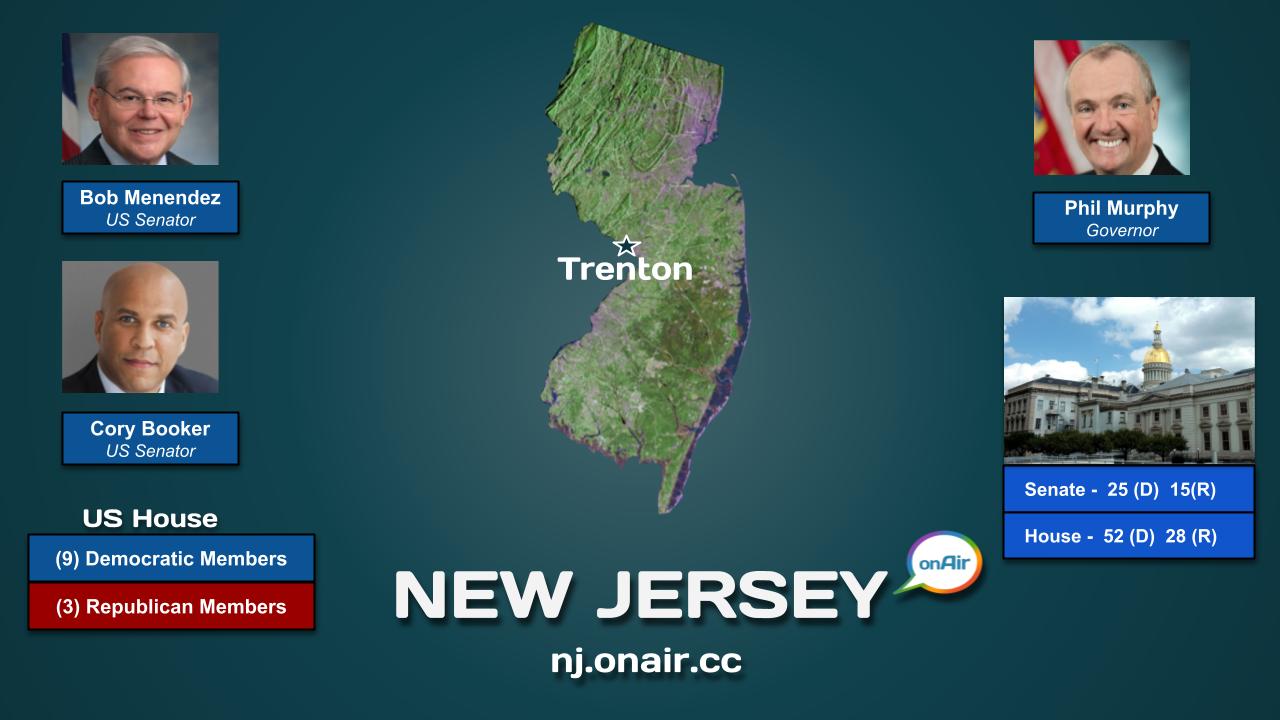Summary
The New Jersey onAir Hub supports New Jerseyans to become more informed about and engaged in local, state, and federal politics while facilitating more civil and positive discussions with their representatives, candidates, and fellow citizens.
- New Jersey onAir is one of 50 state governance and elections hubs that the US onAir Network is providing to help reinvigorate US democracy. This post has short summaries of current state and federal representatives with links to their complete Hub posts. Students curate post content from government, campaign, social media, and public websites. Key content on the New Jersey Hub is also replicated on the US onAir nations Hub at: us.onair.cc.
- New Jersey students will be forming onAir chapters in their colleges and universities to help curate Hub content. As more students participate and more onAir chapters are started, we will expand to include more state and local content as well as increase the number of aircasts – student-led, livestreamed, online discussions with candidates, representatives, and the public.
Find out more about Who Represents Me inNew Jersey
Learn more about the US onAir Network
News
The base content in each post in this New Jersey onAir Hub has been updated as of 12/20/23. In addition to the eight posts on the home page, in depth posts on each US House member and posts on New Jersey government and elections have been started. These posts have been shared with the US onAir Hub and will updated in the US onAir automatically when they are updated in this hub.
If your university or nonpartisan organization (such as a government focused research center, citizen engagement program or a League of Women Voters chapter) is interested in assisting the US onAir network to help curate new issue posts or other posts on this Hub and moderate the forums in each post, contact Ben Murphy at Ben.Murphy@onair.cc.
We are also supporting college students to start an onAir chapter on the their campus to coordinate the curation and moderation of posts especially on state and local representatives and government.
About
All hub content in onAir hubs is free to the public. Hub ontent is under the Creative Commons Attribution-NonCommercial license which permits content sharing and adaptation by nonprofit organizations as long as proper attribution is given to its author(s) and is used for non-commercial purposes. Content and moderation guidelines reinforce our commitment to fact-based, comprehensive content and civil and honest discourse.
To participate in aircast and post discussions, email usdemocracy@onair.cc and include your first name last name, and zipcode. Your real name and any other profile information will not be displayed unless you choose to do so. Your personal information is not shared with any other website or organization.
Hub membership will enable you to:
- Participate in issue and interview aircasts (student-led livestreamed discussions);
- Interact directly with post authors and curators giving them feedback, content suggestions, and asking questions;
- Ask questions, make suggestions, and give endorsement to representatives
Web Links
State Representatives
New Jersey is located in the Southern region of the USA with Atlanta as its capital. Phil Murphy (D) is Governor.
The New Jersey legislature has 47 Senate members and 141 House members.
| Office | Name | Party | Assumed office | Next election | Term limited | Maximum term length | |
|---|---|---|---|---|---|---|---|
| Governor | Phil Murphy | Democratic | January 16, 2018 | 2025 | Yes | Two consecutive terms | |
| Lieutenant Governor* | Sheila Oliver | Democratic | January 16, 2018 | 2025 | Yes | Two consecutive terms | |
Governor Phil Murphy
 Current Position: Governor since 2018
Current Position: Governor since 2018
Affiliation: Democrat
Former Positions: United States Ambassador to Germany from 2009 – 2019; Finance Chair of the Democratic National Committee from 2006 – 2009
Phil Murphy had a 23-year career at Goldman Sachs, where he held several high-level positions and accumulated considerable wealth before retiring in 2006. He is involved in many civic organizations and philanthropic pursuits. He served as finance chairman for the Democratic National Committee in the mid-late 2000s under Howard Dean.
OnAir Post: Phil Murphy – NJ
US Representatives
Senator Cory Booker
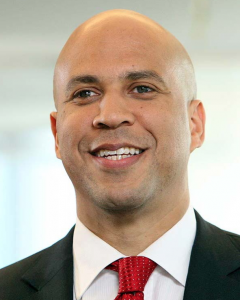 Current Position: US Senator since 2013
Current Position: US Senator since 2013
Affiliation: Democrat
Other Positions: Chair, Subcommittee on Food and Nutrition, Specialty Crops, Organics, and Research – Committee on Agriculture, Nutrition, and Forestry
Throughout his Senate tenure, Booker has written, sponsored, and passed legislation advancing women’s rights, affirmative action, same-sex marriage, and single-payer healthcare. He has pushed for economic reforms to address wealth inequality in the U.S., particularly the racial wealth gap. Booker has pursued measures to reform the criminal justice system, combat climate change, and restructure national immigration policy.
OnAir Post: Cory Booker – NJ
Senator Bob Menendez
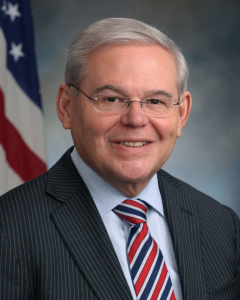 Current Position: US Senator since 2007
Current Position: US Senator since 2007
Affiliation: Democrat
Former Positions: US Representative from 1993 – 2006; State Senator from 1991 – 1993; State Delegate from 1988 – 1991
Other Positions:
Chair, Foreign Relations Committee
Featured Quote:
Until we address the root causes of gun violence, there will be many more shootings in communities across the country – like the one we saw happen in the nation’s capital last night – that don’t make the same headlines.
OnAir Post: Bob Menendez – NJ
Donald Norcross NJ-01
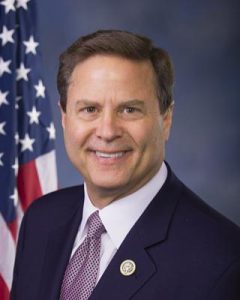 Current Position: US Representative of NJ District 1 since 2014
Current Position: US Representative of NJ District 1 since 2014
Affiliation: Democrat
Former Position: State Senator from 2010 – 2014
Other Positions: Chair, House Armed Services Committee’s Tactical Air and Land Forces (TAL) Subcommittee
District: Includes Camden and South Jersey suburbs of Philadelphia
Featured Quote:
There’s no excuse for 12 years to pass without a raise to the federal min. wage. No American who works full-time should live in poverty – but that’s exactly what’s happening all around us. Raising the minimum wage will allow us to build back better. https://bit.ly/MinWage12Years
OnAir Post: Donald Norcross NJ-01
Jeff Van Drew NJ-02
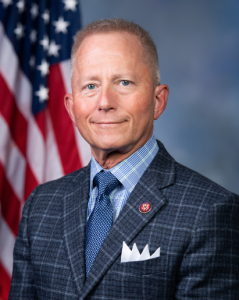 Current Position: US Representative of NJ District 2 since 2019
Current Position: US Representative of NJ District 2 since 2019
Affiliation: Republican
Former Positions: State Senator from 2008 – 2018; State Delegate from 2002 – 2008
District: Southern New Jersey
Featured Quote:
It is unconscionable to think that this Administration has no problem housing illegal immigrants, paid with our tax dollars, but will not allow the Canadian border to be open for those wanting to travel for business or vacation.
Formerly a Democrat, he has been a member of the Republican Party since 2020. Van Drew operated a dental practice in South Jersey for 30 years before retiring.
OnAir Post: Jeff Van Drew NJ-02
Andy Kim NJ-03
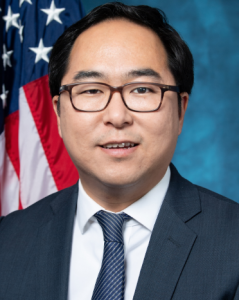 Current Position: US Representative of NJ District 3 since 2019
Current Position: US Representative of NJ District 3 since 2019
Affiliation: Democrat
District: Burlington County, Mercer County, and Monmouth County. [5]
Featured Quote:
There’s a long way to go until November of next year. Maybe you’ll be the nominee. Maybe we’ll get to debate. Let’s focus on what matters. This is a job about service, it’s a job about community, and it’s a job that requires empathy. Let’s act accordingly. (END)
The district encompasses Philadelphia’s eastern suburbs along southern and central New Jersey.Andy Kim is the first Democratic member of Congress of Korean descent and the second overall after Republican Jay Kim (no relation).
OnAir Post: Andy Kim NJ-03
Chris Smith NJ-04
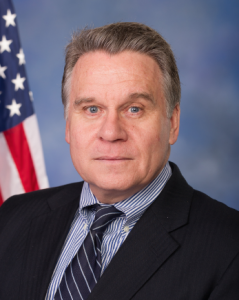 Current Position: US Representative of NJ District 4 since 1981
Current Position: US Representative of NJ District 4 since 1981
Affiliation: Republican
Other Positions: Subcommittee on Africa, Global Health, and Human Rights – Committee on Foreign Affairs
District: stretches along the New Jersey Shore
Upcoming Election:
Featured Quote:
Amid the growing human rights crisis in Nicaragua, Rep. Chris Smith (R-NJ) today chaired a bipartisan congressional hearing calling attention to the extreme political repression and incarceration of political opponents by President Daniel Ortega
Christopher Smith is serving his 22nd term as the U.S. representative for New Jersey’s 4th congressional district. Though it has taken various forms, his district has always been situated in central New Jersey. Currently, the district contains parts of Ocean and Monmouth counties.
OnAir Post: Chris Smith NJ-04
Josh Gottheimer NJ-05
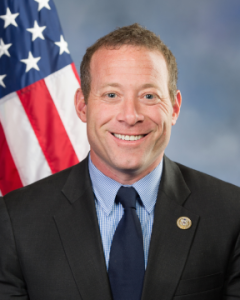 Current Position: US Representative of NJ District 5 since 2017
Current Position: US Representative of NJ District 5 since 2017
Affiliation: Democrat
Other Positions: Chair, Co-Chair Problem Solvers Caucus
District: stretches across the entire northern border of the state and contains most of Bergen County, as well as parts of Passaic County and Sussex County.
Upcoming Election:
Featured Quote:
Restoring the State and Local Tax deduction is critical to NJ, because reinstating SALT will lower taxes for our hard-working families. I’m fighting to get this done in the reconciliation package
Gottheimer was a speechwriter for Bill Clinton and served as an adviser to the presidential campaigns of Wesley Clark, John Kerry, and Hillary Clinton. He has also worked for Burson Cohn & Wolfe, the Federal Communications Commission, Ford Motor Company, and Microsoft.
OnAir Post: Josh Gottheimer NJ-05
Frank Pallone NJ-06
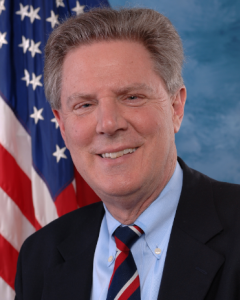 Current Position: US Representative of NJ District 6 since 1981
Current Position: US Representative of NJ District 6 since 1981
Affiliation: Democrat
District: includes the northern and eastern portions of Middlesex County and the coastal areas of Monmouth County, including towns along the Raritan Bay
Upcoming Election:
The 6th district, numbered as the 3rd district from 1988 to 1993, is in the north-central part of the state and includes New Brunswick, Woodbridge Township, Perth Amboy, Sayreville, Edison, Piscataway and Asbury Park. Pallone is the ranking member of the House Energy and Commerce Committee.
Before being elected to the House, he was a member of the Long Branch City Council from 1982 to 1988.
OnAir Post: Frank Pallone NJ-06
Thomas Kean Jr. NJ-07
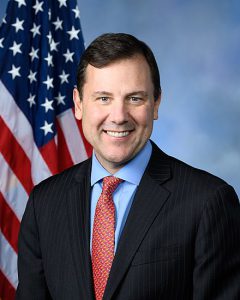 Current Position: US Representative of NJ District 7 since 2023
Current Position: US Representative of NJ District 7 since 2023
Affiliation: Republican
Former Position: New Jersey Senate 21st District from 2003 to 2022, serving as minority leader from 2008 to 2022
District: includes all of Hunterdon and Warren Counties; and parts of Morris, Somerset, Sussex, and Union Counties
Upcoming Election:
Kean is the son of former New Jersey governor Thomas Kean. Kean was an aide to former Congressman Bob Franks and a special assistant at the United States Environmental Protection Agency in the George H. W. Bush administration. He has also been a volunteer firefighter and a volunteer emergency medical technician.
OnAir Post: Thomas Kean Jr. NJ-07
Rob Menendez NJ-08
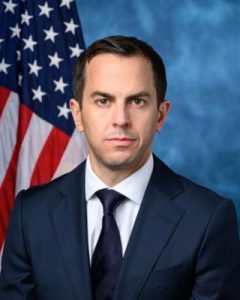 Current Position: US Representative of NJ District 8 since 2023
Current Position: US Representative of NJ District 8 since 2023
Affiliation: Democrat
Former Position: Commissioner of the Port Authority of New York and New Jersey from 2021 to 2023
District: includes some of the most urban areas of New Jersey, including parts of Newark and Jersey City, as well as Elizabeth.
Upcoming Election:
Rob Menendez is the son of U.S. Senator Bob Menendez. He was a commissioner of the Port Authority of New York and New Jersey from 2021 to 2023. Menendez worked as a lawyer with Lowenstein Sandler LLP
OnAir Post: Rob Menendez NJ-08
Bill Pascrell NJ-09
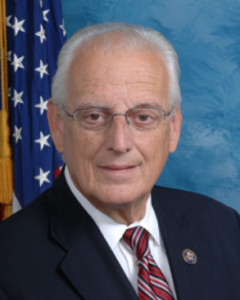 Current Position: US Representative of NJ District 9 since 1997
Current Position: US Representative of NJ District 9 since 1997
Affiliation: Democrat
Former Positions: Mayor of Paterson from 1990 – 1997; State Delegate from 1988 – 1997
Other Positions: Chair, Subcommittee on Oversight – Ways and Means
District: consists largely of municipalities in Bergen County and Passaic County.
Upcoming Election:
Featured Quote:
199 days ago terrorists ransacked the US Capitol and *hours later* 138-of-202 (68%) House republicans voted to make trump a dictator. They tried to finish the rioters’ job and end democracy. Never forget it.
Pascrell spent 12 years as a high school teacher in Paramus, New Jersey, teaching several subjects including psychology, before being hired as a professor at Fairleigh Dickinson University. He was appointed to the Paterson Board of Education, and served as president of the board.
OnAir Post: Bill Pascrell NJ-09
Donald Payne Jr. NJ-10
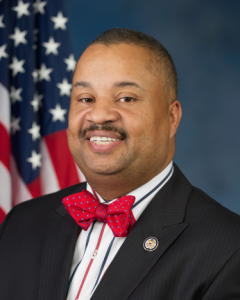 Current Position: US Representative of NJ District 10 since 2012
Current Position: US Representative of NJ District 10 since 2012
Affiliation: Democrat
Former Position: President of the Municipal Council of Newark from 2006 – 2012
Other Positions: Chair, Subcommittee on Railroads, Pipelines and Hazardous Materials- Transportation & Infrastructure
District: consists of portions of Essex, Hudson and Union counties, and includes the cities of Newark and Orange
Upcoming Election:
Featured Quote:
Last week @HouseSmallBiz
passed a $25B generation investment in #SmallBiz as part of the #BuildBackBetter Act . I’m working to advance policy that helps small firms recover now and thrive. Sept. 17, 2021
Following the death of his father, U.S. Representative Donald M. Payne, on March 6, 2012, Payne ran in the primary to succeed him in Congress.
OnAir Post: Donald Payne Jr. NJ-10
Mikie Sherrill NJ-11
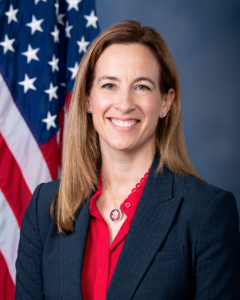 Current Position: US Representative of NJ District 11 since 2015
Current Position: US Representative of NJ District 11 since 2015
Affiliation: Democrat
Former Position: US Navy from 1994 – 2003
Other Positions: Vice Chair, Subcommittee on Tactical Air & Land Forces – House Armed Services Committee
District: includes portions of Essex, Morris, and Passaic Counties.[4] It is centered in Morris County
Upcoming Election:
Featured Quote:
Today marks the anniversary of the 1848 Seneca Falls Convention, the meeting that launched the suffragette movement. The spirit of that first convention lives on today as we continue to fight for gender equality 173 years later.
Mikie Sherrill is a former U.S. Navy helicopter pilot, attorney, and former federal prosecutor. After leaving Kirkland & Ellis, Sherrill joined the United States Attorneys’ Office as an outreach and reentry coordinator. In 2015 Sherrill became an Assistant United States Attorney for the District of New Jersey, a federal prosecutor, working under U.S. Attorney Paul Fishman.
OnAir Post: Mikie Sherrill NJ-11
Bonnie Watson Coleman NJ-12
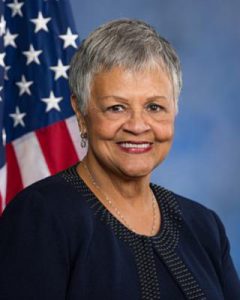 Current Position: US Representative of NJ District 12 since 2015
Current Position: US Representative of NJ District 12 since 2015
Affiliation: Democrat
Former Position: State Delegate from 1998 – 2015
Other Positions: Chair, Subcommittee On Transportation and Maritime Security – Committee on Homeland Security
District: covering portions of Mercer, Somerset, Union, and Middlesex counties, although the district contains the state capital of Trenton as well as the smaller city of Plainfield.
Upcoming Election:
Featured Quote:
The #CrownAct would prohibit hair discrimination by including an individual’s style of hair that is tightly-curled, locs, cornrows, twists, braids, Bantu knots, Afros and other styles commonly associated with a race or national origin in the definition of racial discrimination.
Bonnie Watson Coleman is the first African-American woman to represent New Jersey in Congress. Her father, John S. Watson, served six terms in the New Jersey legislature.
OnAir Post: Bonnie Watson Coleman NJ-12
More Information
Wikipedia
Contents

The government of the State of New Jersey is separated into three distinct branches: legislative, executive, and judicial. The powers of the State of New Jersey are vested by the Constitution of New Jersey, enacted in 1947, in a bicameral state legislature (consisting of the General Assembly and Senate), the Governor, and the state courts, headed the New Jersey Supreme Court. The powers and duties of these branches are further defined by acts of the state legislature, including the creation of executive departments and courts inferior to the Supreme Court.
Like most states, the state allows the incorporation of county, and other local municipal governments. The state capital is located in Trenton.
Executive branch

The executive branch is organized into departments, which may not number more than twenty according to the constitution; there are eighteen departments and fifty-six agencies. Temporary commissions may be allocated by law for special purposes outside of the departments.
The New Jersey Register is the official journal of state agency rulemaking containing the full text of agency proposed and adopted rules, notices of public hearings, Gubernatorial Orders, and agency notices of public interest.[1] The New Jersey Administrative Code (N.J.A.C.) is a compilation of all rules adopted by state agencies.[1]
Governor
The Governor of New Jersey is head of the executive branch. The office of governor is an elected position, for which elected officials serve four-year terms. Governors cannot be elected to more than two consecutive terms, but there is no limit on the total number of terms they may serve.[2] The official residence for the governor is Drumthwacket, a mansion located in Princeton, New Jersey; the office of the governor is at the New Jersey State House in Trenton. The Governor is responsible for appointing two constitutionally created officers, the New Jersey Attorney General and the Secretary of State of New Jersey, with the approval of the senate.
Lieutenant governor

The lieutenant governor of New Jersey is the second highest-ranking official in the state government. The office of lieutenant governor is elected on a ticket with the governor for a four-year term concurrent with the governor. Because the position lacks distinct powers or purpose other than to exist solely as next in the order of succession, the state constitution requires that the lieutenant governor be appointed to serve as the head of a cabinet-level department or administrative agency within the Governor’s administration. However, pursuant to the state constitution, a lieutenant governor cannot serve as the state’s Attorney General.
Prior to 2010, New Jersey was one of a few states in the United States that did not have a lieutenant governor to succeed to the governorship in the event of a vacancy in that office. For most of the state’s (and previously the colony’s) history, a vacancy in the position of governor was filled by the president of the State Senate (called the “Legislative Council” from 1776 to 1844), or during the colonial era by the president of the royal governor’s Provincial Council. After several episodes where the state had multiple “acting governors” in the span of a few years following the resignations of Governor Christine Todd Whitman in 2001 and Governor James E. McGreevey in 2004, popular sentiment and political pressure from the state’s residents and news media outlets sought a permanent and tenable solution to the issue of succession when the governor’s office became vacant. A 2005 referendum to amend the constitution provided for the position of lieutenant governor to be created, to change the order of succession, and that the post would be filled in next gubernatorial election (2009).
Republican Kim Guadagno was the first to serve in the post in its modern form. Guadagno, previously the sheriff in Monmouth County, was chosen by Governor Chris Christie to be his running-mate on the Republican party ticket in the 2009 election.
Departments
The state constitution provides that the governor appoints the heads of up to 20 principal departments. As of 2024, the state’s executive branch has 15 cabinet-level or principal departments.[3]
| Principal department | Notes | Cabinet Member |
|---|---|---|
| Department of Agriculture |
| Edward Wengryn |
| Department of Banking and Insurance |
| Marlene Caride |
| Department of Children and Families |
| Christine Norbut Beyer |
| Department of Community Affairs |
| Jacquelyn A. Suárez |
| Department of Corrections |
| Victoria Kuhn |
| Department of Education |
| Kevin Dehmer |
| Department of Environmental Protection |
| Shawn LaTourette |
| Department of Health |
| Judith Persichilli |
| Department of Human Services |
| Sarah Adelman |
| Department of Labor and Workforce Development |
| Robert Asaro-Angelo |
| Department of Law and Public Safety |
| Matthew Platkin |
| Department of Military and Veterans Affairs |
| Brigadier General Lisa Hou |
| Department of State |
| Tahesha Way |
| Department of Transportation |
| Diane Gutierrez-Scaccetti |
| Department of the Treasury |
| Elizabeth Maher Muoio |
Legislative branch
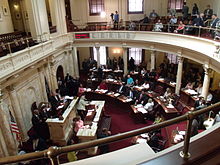
The NJ Constitution provides for a bicameral Legislature consisting of a Senate of 40 members and an Assembly of 80 members. Each of the 40 legislative districts elects one Senator and two Assembly members. Assembly members are elected by the people for a two-year term in all odd-numbered years; Senators are elected in the years ending in 1, 3, and 7 and thus serve either four- or two-year terms.
The Legislature is responsible for the appointment of the New Jersey State Auditor, the only state officer which is appointed by the legislature. Its session laws are published in the Acts of the Legislature of the State of New Jersey, commonly known as the Laws of New Jersey,[4] which are codified in the New Jersey Statutes (N.J.S.),[5] also referred to as the Revised Statutes (R.S.),[5] which are in turn published in the New Jersey Statutes Annotated (N.J.S.A.).[6]
The members of the New Jersey Legislature are chosen from 40 electoral districts. Each district elects one Senator and two Assemblymen. New Jersey is one of seven U.S. states along with Arizona, Idaho, Maryland, North Dakota, South Dakota, and Washington in which districts for the upper and lower house of the legislature are coterminous. Districts are redefined decennially by the New Jersey Apportionment Commission following each U.S. Census, as provided by Article IV, Section III of the State Constitution.
Senate
The New Jersey Senate was established as the upper house of the New Jersey Legislature by the Constitution of 1844, replacing the Legislative Council. There are 40 legislative districts, representing districts with average populations of 232,225 (2020 figure). Each district has one senator and two members of the New Jersey General Assembly, the lower house of the legislature. Prior to the election in which they are chosen, senators must be a minimum of 30 years old and a resident of the state for four years to be eligible to serve in office.[7]
From 1844 until 1965 (when redistricting could be done following the Reynolds v. Sims decision), each county was an electoral district electing one senator. Under the 1844 Constitution the term of office was three years, which was changed to four years with the 1947 Constitution. Since 1968 the Senate has consisted of 40 senators, who are elected in a “2-4-4” cycle. Senators serve a two-year term at the beginning of each decade, with the rest of the decade divided into two four-year terms. The “2-4-4” cycle was put into place so that Senate elections can reflect the changes made to the district boundaries on the basis of the decennial United States Census.[7] If the cycle were not put into place, then the boundaries would sometimes be four years out of date before being used for Senate elections. Rather, with the varied term, the boundaries are only two years out of date. Thus elections for Senate seats take place in years ending with a “1”, “3”, or “7” (i.e. next elections in 2023, 2027, and 2031).
General Assembly
Since the election of 1967 (1968 Session), the Assembly has consisted of 80 members. Two members are elected from each of New Jersey’s 40 legislative districts for a term of two years, each representing districts with average populations of 232,225 (2020 figures), with deviation in each district not exceeding 3.21% above and below that average.[8] To be eligible to run, a potential candidate must be at least 21 years of age, and must have lived in their district for at least one year prior to the election, and have lived in the state of New Jersey for two years. They also must be residents of their districts. Membership in the Assembly is considered a part-time job, and many members have employment in addition to their legislative work. Assembly members serve two-year terms, elected every odd-numbered year in November.
The Assembly is led by the Speaker of the Assembly, who is elected by the membership of the chamber. After the Lieutenant Governor of New Jersey and the President of the New Jersey Senate, the Speaker of the Assembly is third in the line of succession to replace the Governor of New Jersey in the event that the governor is unable to execute the duties of that office. The Speaker decides the schedule for the Assembly, which bills will be considered, appoints committee chairmen, and generally runs the Assembly’s agenda. The current Speaker is Craig Coughlin (D–Woodbridge).
Legislative Leadership
| Senate leadership | Assembly leadership | |||||||
|---|---|---|---|---|---|---|---|---|
| Senate position | Senator | Party | Senate district | Assembly position | Representative | Party | Assembly district | |
| President of the Senate | Democrat | New Jersey’s 22nd legislative district | Speaker of the Assembly | Democrat | New Jersey’s 19th legislative district | |||
| President pro tempore | Democrat | New Jersey’s 31st legislative district | Speaker pro tempore | Democrat | New Jersey’s 35th legislative district | |||
| Majority Leader | Democrat | New Jersey’s 29th legislative district | Majority Leader | Democrat | New Jersey’s 6th legislative district | |||
| Minority Leader | Republican | New Jersey’s 25th legislative district | Minority Leader | Republican | New Jersey’s 23rd legislative district | |||
Judicial branch
The state court system of New Jersey comprises the New Jersey Supreme Court, the state supreme court, and many lower courts.
Supreme Court of New Jersey

The Supreme Court is the highest court in the state. It hears appeals from the Appellate Courts. It has the capacity, rarely exercised, to look into other cases within the judicial and executive branches.[9]
The Court[10] consists of a chief justice and six associate justices. All are appointed by the Governor with the advice and consent of a majority of the membership of the state senate. Justices serve an initial seven-year term, after which they can be reappointed to serve until age 70. The New Jersey Supreme Court was created and its role established by the delegates to the Constitutional Convention of 1947. As the highest court in the State, it replaced the prior Court of Errors and Appeals, created under the Constitution of 1844.[11] It is the final judicial authority on all cases in the state court system, the sole determinant of the constitutionality of state laws with respect to the state constitution, and the arbiter and overseer of the decennial legislative redistricting.
Superior Court of New Jersey, Appellate Division
According to Mandel’s New Jersey Appellate Practice, “The Appellate Division of New Jersey’s Superior Court is the first level appellate court, with appellate review authority over final judgments of the trial divisions and the Tax Court and over final decisions and actions of State administrative agencies.”[12]
The state’s Supreme Court held that “an appellate court’s judgment provides ‘the final directive of the appeals courts as to the matter appealed, setting out with specificity the court’s determination that the action appealed from should be affirmed, reversed, remanded or modified’”[13]
Superior Court of New Jersey
The Superior Court is the state court in the U.S. state of New Jersey, with statewide trial and appellate jurisdiction. The New Jersey Constitution of 1947 establishes the power of the New Jersey courts.[14] Under the State Constitution, “‘judicial power shall be vested in a Supreme Court, a Superior Court, County Courts and inferior courts of limited jurisdiction.’”[15] The Superior Court has three divisions: the Appellate Division is essentially an intermediate appellate court while the Law and Chancery Divisions function as trial courts. The State Constitution renders the New Jersey Superior Court, Appellate Division the intermediate appellate court, and “[a]ppeals may be taken to the Appellate Division of the Superior Court from the law and chancery divisions of the Superior Court and in such other causes as may be provided by law.”[14] Each division is in turn divided into various parts. “The trial divisions of the Superior Court are the principal trial courts of New Jersey. They are located within the State’s various judicial geographic units, called ‘vicinages,’ R. 1:33-2(a), and are organized into two basic divisions: the Chancery Division and the Law Division”.[16]
Like justices of the New Jersey Supreme Court, judges of the Superior Court are appointed by the Governor and confirmed by the State Senate for initial terms of seven years. If reappointed before the expiration of the initial term, the judge is said to have tenure and can serve until the mandatory judicial retirement age of 70. Retired judges may be recalled to serve in courts other than the Supreme Court. Judges are assigned to the court’s divisions and parts (and in the case of the Law and Chancery Divisions, to a particular vicinage) by the Supreme Court.
Municipal Court
The Municipal Courts carry out most of the day-to-day work in the New Jersey courts, where simple traffic tickets, minor criminal offenses, and small civil matters are heard.
Tax Court
The Tax Court is a court of limited jurisdiction. Tax Court judges hear appeals of tax decisions made by County Boards of Taxation. They also hear appeals on decisions made by the Director of the Division of Taxation on such matters as state income, sales and business taxes, and homestead rebates. Appeals from Tax Court decisions are heard in the Appellate Division of Superior Court. Tax Court judges are appointed by the Governor for initial terms of seven years, and upon reappointment are granted tenure until they reach the mandatory retirement age of 70. There are 12 Tax Court judgeships.
Local government

Counties
New Jersey has 21 counties, each of which is administered by a Board of County Commissioners—an elected commission of either three, five, seven, or nine seats determined by the size of the county’s population—that oversee a range of executive and legislative functions. In most counties, the commissioners are elected at-large, where each commissioner represents the entire county. Hudson County divides the county into nine districts that are equal in population size and represented by one commissioner. Essex County and Atlantic County have five commissioners representing districts and four commissioners elected at-large. In some counties, commissioners perform both legislative and executive functions on a commission basis, with each commissioner assigned responsibility for a department or group of departments. In Atlantic, Bergen, Essex, Hudson, and Mercer counties, there is a directly elected county executive who performs the executive functions while the Board of County Commissioners retains a legislative and oversight role. In counties without an executive, a county administrator or county manager may be hired to perform day-to-day administration of county functions.
Municipalities
As of 2023, New Jersey’s 21 counties are divided into 564 municipalities. Each municipality is located in exactly one county; there are no independent cities or consolidated city-counties. There is no unincorporated territory in the state, making New Jersey one of the few states outside New England in which every square foot is incorporated. Title 40 of the New Jersey Statutes allows the state’s municipalities to be incorporated under five types- city, town, township, borough, and village, with twelve management forms. The U.S. Census Bureau reports that New Jersey has 252 boroughs, 52 cities, 15 towns, 241 townships, and 4 villages.[17] Several municipalities continue to operate under special charters that do not conform with the government formats prescribed by the current statutes. New Jersey’s municipalities range in population from towns with small single-digit or double-digit populations (as in Tavistock or Walpack Township) or cities in which several hundred thousand people reside, such as Newark, Paterson or Trenton.
School districts
New Jersey distinguishes between regional, consolidated and countywide school districts and those serving single municipalities. There are also non-operating school districts, which are those districts that do not operate any school facilities and where all students attend school in other districts as part of sending/receiving relationships. The majority of school districts in New Jersey are established for general purposes and have boundaries equivalent to the municipality with which they are associated.[18] The schools of each public school district are governed by a board of education.[18] There is a superintendent for each district, which may be shared between districts, and a county superintendent of schools (the state Department of Education‘s representative) and executive county superintendent of schools (gubernatorial appointments whose duties include reducing district spending, collaboration and shared services) in each county.[19]
See also
- Elections in New Jersey
- United States congressional delegations from New Jersey
- Politics of New Jersey
- Political party strength in New Jersey
- Law of New Jersey
References
- ^ a b “New Jersey Register and Administrative Code now published by West Publishing Company”. New Jersey Discharger. Fall 1995. Archived from the original on 6 November 2004. Retrieved 11 April 2014.
- ^ “Frequently Asked Questions”. Retrieved July 5, 2011.
- ^ State of New Jersey. Departments and Agencies. Retrieved August 28, 2013.
- ^ Acts of the Legislature of the State of New Jersey. Secretary of State of New Jersey. OCLC 7255266.
- ^ a b N.J.S. § 1:1–5.1
- ^ “Zimmerman’s Research Guide – New Jersey”. LexisNexis. Retrieved 15 April 2014.
- ^ a b Our Legislature Archived 2011-10-31 at the Wayback Machine, New Jersey Legislature. Accessed January 10, 2018. “Legislative elections are held in November of each odd-numbered year. Members of the Assembly serve two-year terms. Senators serve four-year terms, except for the first term of a new decade, which is only two years. This ‘2-4-4’ cycle allows for elections from new districts as soon as possible after each reapportionment.”
- ^ Statistical Data Tables, New Jersey Apportionment Commission. Accessed August 25, 2021.
- ^ Jeffrey S. Mandel, New Jersey Appellate Practice (Gann Law Books), chapter 1:2-2
- ^ “Supreme Court”. Archived from the original on 2008-12-16. Retrieved 2010-07-25.
- ^ Jeffrey S. Mandel, New Jersey Appellate Practice (Gann Law Books), chapter 12:1-1
- ^ Jeffrey S. Mandel, New Jersey Appellate Practice (Gann Law Books), chapter 7:1
- ^ State v. Randolph, 210 N.J. 330, 350 n.5 (2012), citing Jeffrey S. Mandel, New Jersey Appellate Practice (Gann Law Books), chapter 28:2
- ^ a b Jeffrey S. Mandel, New Jersey Appellate Practice (Gann Law Books), chapter 7:1-1
- ^ Jeffrey S. Mandel, New Jersey Appellate Practice (Gann Law Books), chapter 4:1-1
- ^ Jeffrey S. Mandel, New Jersey Appellate Practice (Gann Law Books), chapter 1:3-1
- ^ U.S. Census Bureau. “New Jersey – Place and County Subdivision” Archived 2020-02-12 at archive.today Retrieved 28 September 2013.
- ^ a b Governance and Urban School Improvement: Lessons for New Jersey From Nine Cities (PDF). Institute on Education Law and Policy, Rutgers–Newark. October 2010. Archived from the original (PDF) on 2014-05-14. Retrieved 2014-05-14.
- ^ Shared Services in School Districts: Policies, Practices and Recommendations (PDF). Institute on Education Law and Policy, Rutgers–Newark. September 2007. Archived from the original (PDF) on 2016-03-03. Retrieved 2014-05-14.
External links
